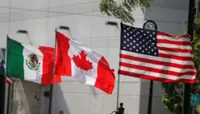IN THE run-up to the 14th General Election, this column will focus on issues dealing with the conduct of politics, the mode of public governance and the links between government and business.
The first – and probably the most contentious – issue necessitating urgent debate, if Malaysia is to have fair elections, is the role of money in politics and elections.
Monetised politics has long been the scourge of our political system, a concern first raised in the early 1990s by then Prime Minister Tun Dr Mahathir Mohamad.
Both subsequent Prime Ministers, Tun Abdullah Ahmad Badawi and Datuk Seri Najib Tun Razak, have also publicly acknowledged the debilitating impact of the voluminous use of money for electioneering on the political system and the economy.
However, nearly three decades on, no real change has occurred to stymie the abuse of money during electoral contests.
Interestingly, while opposition parties have long been prominent critics of monetised politics, following the general election in 2008, they can hardly be said to be serious advocates of political financing reforms.
Indeed, today, it is civil society groups that are actively critiquing the mode of financing of politics, even producing, on two occasions, full-fledged proposals on this issue.
Both proposals have not been taken up by the ruling Barisan Nasional and opposition-based Pakatan Harapan coalitions.
The key features of Malaysia’s political finance regime, as currently practiced, that require immediate attention include unlimited anonymous – usually business – donations to parties; the unequal access to funds by parties; and the possibility that ruling parties at federal and state level can benefit from the network of government-linked companies (GLCs) that make up a substantial portion of Malaysia’s corporate sector.
Other fundamental anomalies contribute to the excessive use of money during election campaigns.
First, the Election Offences Act limits expenditure during a campaign. A parliamentary seat candidate is allowed election expenses up to a maximum of RM200,000, while a candidate contesting a state seat is permitted up to RM100,000.
However, there are no limits on how much a party can spend during an election, which explains why huge sums of money are spent during electoral contests.
The spirit of the of Election Offences Act has been persistently violated during elections.
Clearly, existing laws do not ensure fair electoral behaviour, loopholes are blatantly exploited and electoral financing regulations hardly inspire the principle of political accountability that is expected of parties.
Second, when a foreign donation of RM2.6 billion was channeled to Prime Minister Najib, who then disclosed that these funds were employed during the 13th General Election, this drew attention to two crucial matters: first, the existence of slush funds and the financing of domestic politics by foreigners.
In most countries, both are considered matters that require regulation.
Indeed, many countries do not permit foreign funding of their parties or politicians. These issues draw attention to serious omissions in existing legislation that have to be addressed and rectified.
Najib has, on two occasions, voiced the need to deal with these problems.
When he came to power in 2009, Najib announced a transformation agenda entailing, among other things, reforming the financing of politics to end rent-seeking, corruption and patronage.
In 2011, in response to this call by Najib, Transparency International (TI)-Malaysia unveiled a 22-point memorandum, which was a comprehensive proposal to regulate political financing.
The proposals were subsequently published as a book, Reforming Political Financing in Malaysia.
Opposition parties did not support these reforms and when the government also showed a reluctance to act on these proposals, the reform agenda stalled.
The implications of refusing to institute these reforms were poignantly demonstrated during the general election in 2013, an electoral contest that was, by the admission of politicians themselves, deeply monetized.
In 2015, in response to the controversy surrounding the RM2.6 billion foreign donation, Najib created a National Consultative Committee on Political Financing to offer reform suggestions.
However, NGOs were concerned that the Committee’s mandate was only to advice on the tenets of a new law, with no review of institutional reforms.
About 70 NGOs, led by the G25, a group of prominent ex-civil servants, submitted to the Prime Minister a comprehensive proposal on political financing reform.
The proposal covered the regulatory and legal framework of political financing, autonomy and enforcement power for institutions and regulation of both general election campaigns as well as party elections.
Nothing came of these proposals as the government did not respond to them. The opposition did not endorse this proposal.
In September 2016, when the Consultative Committee released its report, its proposals resembled those of the NGOs, but with two fundamental differences.
The Committee proposed removing caps on funds given to and spent by parties, thus legitimising the huge inflow of money into the system. It did not include a revised institutional framework to empower relevant oversight agencies, a crucial change to guarantee that the opposition’s donors would not be unfairly targeted.
The opposition opposed these proposals, but did not offer an alternative plan. The BN parties endorsed the reforms proposed by the Committee, but a draft law has not been tabled in parliament for debate though Malaysians were told a new legislation on political financing would be adopted before the 14th General Election.
If meaningful reforms are not instituted, it is quite likely that the contestations between parties and NGOs will persist.
This is because the consequences of not instituting these reforms include influence peddling by large corporations and wealthy individuals; major funders’ power and sway over policy plans; unfair electoral campaigns that also deny the participation of small and new parties in elections; and, very importantly, opening up the potential for political corruption arising from deals between parties and big businesses.
To delink the nexus between parties and business, a third proposal was recently prepared by Wong Chin Huat of the Penang Institute.
Wong has proposed public funding of parties, a practice common in many democracies, with a thoughtful outline of how such funds can be distributed equitably in return for public accountability by parties.
His proposal, an endeavor, as he puts it, “to pay political parties to be clean”, has received no support from PH or BN.
The irony here is that a careful assessment of these civil society-based proposals indicates not merely new regulations but a support mechanism for all parties to fundraise through legitimate means.
The consequences of these NGOs’ recommendations are fair elections; well-functioning parties; adequate funds for parties to maintain offices, undertake policy research, conduct polls and political education, run advertising campaigns for policies, and mobilize voters; and mechanisms to ensure politicians remain accountable to the electorate.
These regulations as well as autonomous oversight institutions will ensure powerful monied interests do not capture control of the political system.
In the run-up to GE14, parties must state their stand on these reform proposals by NGOs.
Any suggestions by parties about political financing reforms in their manifestoes will merely be seen as a gimmick to delay acting on this matter as full-fledged proposals are available.
If parties expect the electorate to place their trust in them to govern justly, they must be willing to be subjected to public scrutiny.
Only a public debate by parties on these reforms, to inform the electorate how they plan to institute a fair voting process in an accountable and transparent political financing system, will inspire confidence that the scourge of money politics in Malaysia will be addressed.
Edmund Terence Gomez is professor of political economy at the Faculty of Economics & Administration, University of Malaya. He is the author of the recently published Minister of Finance Incorporated: Ownership and Control of Corporate Malaysia.





